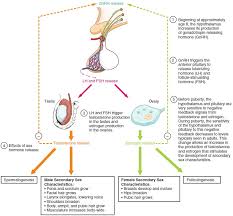
REPRODUCTION
Reproduction (or procreation or breeding) is the biological process by which new individual organisms – "offspring" – are produced from their "parents". Reproduction is a fundamental feature of all known life; each individual organism exists as the result of reproduction.The reproductive system in females is responsible for producing gametes (called eggs or ova), certain sex hormones, and maintaining fertilized eggs as they develop into a mature fetus and become ready for delivery.
The major function of the reproductive system is to ensure survival of the species. Other systems in the body, such as the endocrine and urinary systems, work continuously to maintain homeostasis for survival of the individual.The fertilized egg then moves to the uterus, where the uterine lining has thickened in response to the normal hormones of the reproductive cycle. Once in the uterus, the fertilized egg can implant into thickened uterine lining and continue to develop.The male reproductive system is a network of external and internal organs that function to produce, support, transport, and deliver viable sperm for reproduction. ... Sperm is produced in the testes and is transported through the epididymis, ductus deferens, ejaculatory duct, and urethra.
The main reproductive hormones are oestrogen and testosterone. Oestrogen causes eggs to mature in ovaries once a girl hits puberty. These are then released at regular intervals during the menstrual cycle. Testosterone stimulates sperm production in males.


